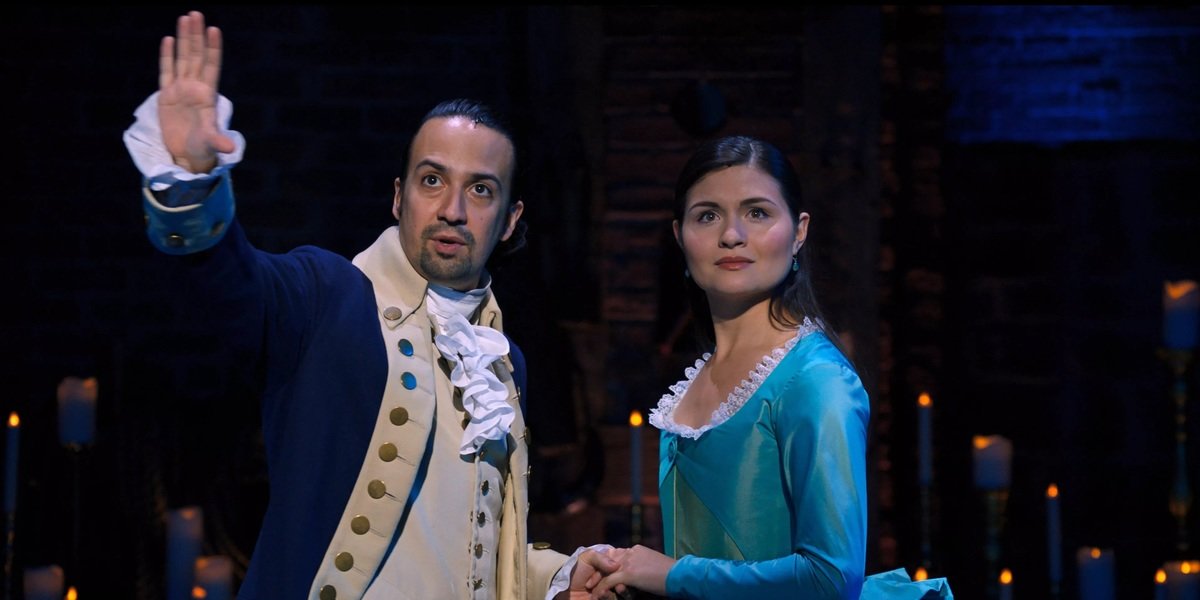

For those of us who seldom travel to Manhattan or do not have a thousand dollars to drop on theatre tickets once we’re there, the billion-dollar cultural phenomenon of the last decade is here. Streamable on the subscription service Disney+, Hamilton the musical is now available in a medium accessible to the masses.
It is big, it is bold, and there are so many good things I can honestly say about it. Except, alas, that I liked it.
An explosion of veritably Shakespearean poetic wit, hip-hopping musical innovation, and awe-inspiring individual performances, Hamilton commemorates the career of the relatively under-celebrated American Founding Father Alexander Hamilton. His face is on the $10 bill, and this musical dedicates an astonishing level of effort to show us why.
One of the principal early defenders of the U.S. Constitution and shaping hands in the development of the American federal financial system, Hamilton is exactly the sort of person who is seldom famous but probably should be, someone who changes history without but maybe once or twice venturing out from behind a desk.
At least five parts attitude to one part insight, this musical aims at nothing less than the bombastic apotheosis of this career letter writer and finance man. Like a final project in a high school American history class gone absolutely haywire, this cultural tour de force is so over the top that it almost succeeds at making of Hamilton the one thing it might just be impossible for such a person to be, a genuinely interesting man.
The shortcoming lies far beneath the glittering ghetto-glamour-meets-Colonial-cufflinks surface and only really becomes undeniable in the anti-climactic ending (which I won’t spoil). The basic mistake at the heart of Hamilton, as I take it, is really in its sense of what makes all history actually interesting, and by implication, that microcosm of history that is every individual human life.
In this case, the presumed interest in the musical’s titular character seems to follow from a self-evident interest in the history of the United States. Hamilton played a big part in shaping the big country, it seems to say, and therefore everyone, or least Americans, should perk up.
But history for a Christian, even an American Christian, properly speaking, can never really be interesting strictly as an end in itself. Rather, history takes on its real significance only in the light of an End beyond itself.
Translating these competing attitudes into art, one person says, so long as art, like history, captivates along the way, it does not really matter where it ends (the journey is about the journey).
Another argues the opposite and is willing to endure any quantity of boredom so long as the sums come right in the end (the journey is about the destination).
But the Christian, thank heaven, can reject both views, or rather accept what is best of both. Because for the Christian, the End of history – its purpose, fulfillment, i.e., Jesus Christ – has entered into the midst of history.
Aesthetically speaking, a Christian can truly enjoy the journey precisely because it already participates in and anticipates the ending. What makes the journey enjoyable is precisely that it is moving us even closer towards some climactic realization.
The fundamental problem with Hamilton – and the reason it ultimately fails to please even as it ceaselessly entertains – is that it leaves us in the end with mere history, rather than a sense of how this history participates in a story that transcends history.
We might observe a similar distinction in the difference between mere entertainment and good art. Whereas entertainment involves an expense that distracts and enervates, good art enriches and energizes.
Entertainment is like a side route that diverts us from the main road and shows us some spectacle. Worthwhile art is a side route which shows us something more or less spectacular, yet either (almost miraculously) spills us back out onto the main road a little closer to where we are going or at least sets us back where we started but refuelled for the next leg of the journey.
In these terms, Hamilton is certainly world-class entertainment, but even at the basement bargain rate of 99 per cent off Broadway fares, I still do wonder if it is really quite worth it: after nearly three hours driving and a quarter tank’s worth of gas, it spills us back onto the main road not a quarter inch closer to the End.
In terms of art, then, if history has no real purpose or destination we are all attempting to reach, collectively and individually, then it probably does not really matter how our stories end. But if history, like life, does have an aim, it would seem to follow that part of the purpose of art (like all human endeavours) is to aid our getting there.
(Originally published in The B.C. Catholic)
